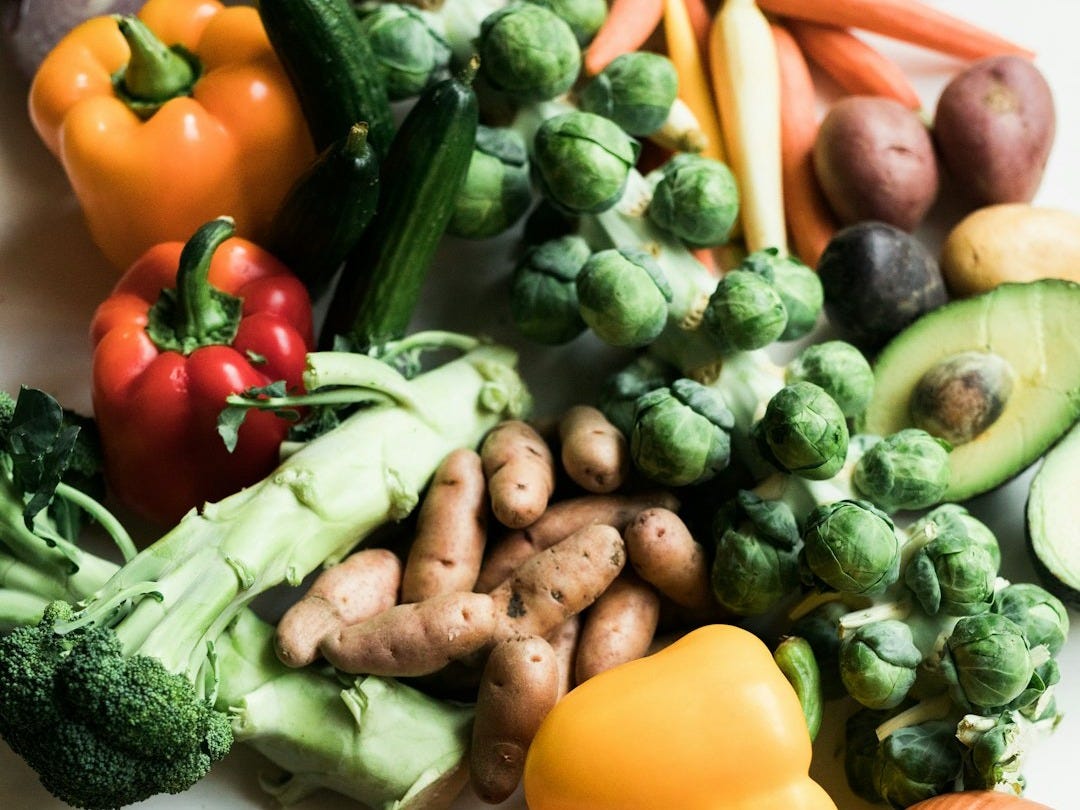
I recently came across a study citing research from the Lancet reporting that “45% of dementia cases could be prevented by fully addressing 14 lifestyle factors.”
Many of these factors are directly related to diet and nutrition including high blood pressure, obesity, elevated blood sugar levels, and elevated LDL cholesterol.
Since diet is a major contributing factor to the development of Alzheimer’s and dementia, a follow-up study was recently published in April of 2024 comparing the effects of two popular dietary approaches on cognitive function: anti-inflammatory diet vs protein-rich diet.
The study looked at how often certain foods were consumed by participants:
Protein-rich foods included meats, fish, eggs, dairy, and beans/legumes.
Anti-Inflammatory foods included fruits, vegetables, beans/legumes, nuts, seeds, and tea.
Each participant also participated in memory testing to assess cognitive function and dementia risk.
They found that the participants who consumed a mostly anti-inflammatory diet reduced the risk of cognitive impairment by 21%, while those who consumed a mostly protein-rich diet reduced the risk of cognitive decline by 9%.
They also noted that higher levels of inflammation in the body are associated with greater rates of cognitive decline, which explains how an anti-inflammatory diet is effective in reducing the risk of cognitive decline, Alzheimer’s, and dementia.
Anti-inflammatory diets reduce the risk of more than just cognitive decline though.
According to research from the Mayo Clinic, “chronic inflammation contributes to diseases that together represent the leading causes of death around the world” including heart disease, cancer, and diabetes. They also note that microbiome imbalance is a major contributing factor to chronic inflammation and disease.
Chronic inflammation is like a low-grade fire that slowly damages your cells, tissues, and organs, accelerating the aging and disease process day by day.
This means that reducing inflammation by following an anti-inflammatory diet can ultimately reduce your risk of every major chronic disease.
Note: While protein is absolutely essential for health and longevity, the reason that anti-inflammatory diets are associated with the greatest reduction in cognitive decline and overall disease risk is because they significantly reduce inflammation in the body, while protein doesn’t. Protein just serves a different role in the body: building and maintaining muscle mass, blood sugar regulation, satiety, weight management, hormone synthesis, etc. However, both are key components for optimal health and longevity. The key takeaway here should be to emphasize anti-inflammatory foods at each meal while also incorporating 20-30 grams of high-quality protein. For a visual representation, this would look like 80% plants on your plate (vegetables, fruit, minimally processed grains, legumes, etc.) and 20% protein (chicken, fish, Greek yogurt, eggs, etc.).
In addition to following an anti-inflammatory diet, other lifestyle factors that help to reduce inflammation and the risk of cognitive decline and chronic disease include getting regular physical activity, not smoking, reducing stress, getting adequate sleep, and social connection.
Let’s take a look at the specific components that make up an anti-inflammatory diet so that you can begin to adopt these foods into your own lifestyle.
Components Of An Anti-Inflammatory Diet
The most studied anti-inflammatory diets include the Mediterranean Diet, DASH Diet, and MIND diet. Each of these diets has an emphasis on the following:
Vegetables and dark leafy greens: 3-5 servings per day with at least one serving of dark leafy greens.
Fruit and berries: 2-3 servings per day with at least one serving of berries.
Minimally processed whole grains and starchy vegetables: 2-4 servings per day from sources like oats, quinoa, wild rice, buckwheat, sweet potatoes, and squash.
Healthy fats daily from extra-virgin olive oil, avocados, nuts, and seeds.
Quality protein sources at each meal such as salmon, shrimp, chicken, eggs, beans/legumes, tofu, Greek yogurt, nuts, and seeds.
Herbs and spices daily such as cinnamon, cloves, oregano, turmeric, and ginger.
Probiotics and fermented foods daily such as Greek yogurt, kefir, aged cheeses, and fermented vegetables.
Coffee, tea, and dark chocolate daily or most days.
In addition, it’s important to limit foods that promote inflammation and lead to imbalances in the microbiome like added sugars, refined grains, inflammatory vegetable oils, gluten, and processed foods.
If you’re looking for some guidance with adopting an anti-inflammatory lifestyle, check out my cookbook Recipes For Longevity which is filled with over 70 meals to reduce inflammation, slow cognitive decline, and optimize gut health.
I’m also creating a special anti-inflammatory recipe bundle for the holidays that I’m excited to share with you soon!
-xo Kate



